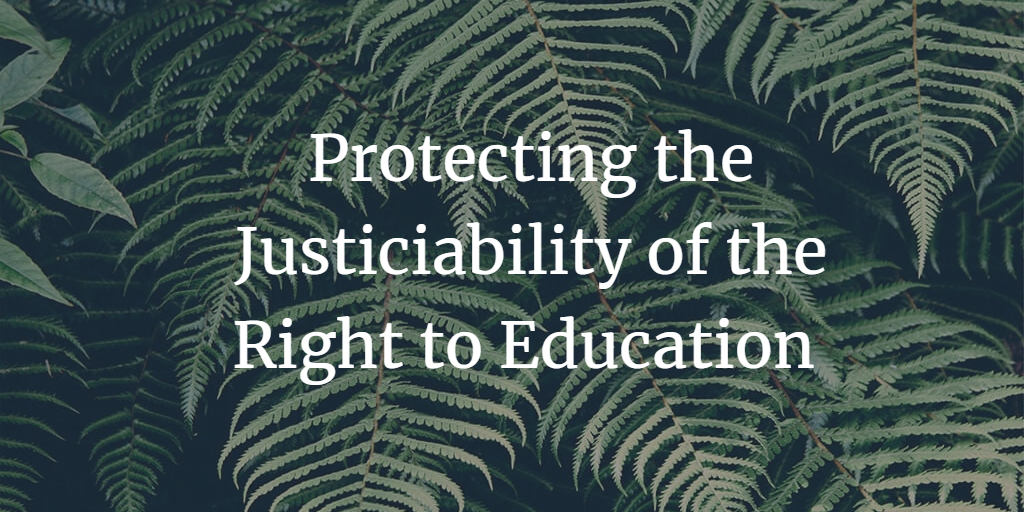Protecting the Justiciability of the Right to Education

Table of Contents
Introduction
The Right to Education: A Fundamental Right in India
Challenges in Protecting the Justiciability of the Right to Education in India
Strategies to Protect the Justiciability of the Right to Education in India
Conclusion
Introduction
The right to education is a fundamental human right, and in India, it is enshrined in the Constitution as a fundamental right. Ensuring the justiciability of the right to education is crucial for the country's overall development and the well-being of its citizens. This article discusses the challenges and strategies involved in protecting the justiciability of the right to education in India.
The Right to Education: A Fundamental Right in India
The right to education is recognized as a fundamental right under Article 21A of the Indian Constitution. It mandates that the state provide free and compulsory education to all children between the ages of 6 and 14. Additionally, the Right of Children to Free and Compulsory Education (RTE) Act, 2009, provides a legal framework for the implementation of this right.
Challenges in Protecting the Justiciability of the Right to Education in India
Despite the constitutional and legal protections, the justiciability of the right to education in India faces several challenges, including:
Lack of adequate infrastructure: Many schools across the country lack basic facilities, such as proper classrooms, clean drinking water, and sanitation facilities. This can hinder the quality of education provided and discourage children from attending school.
Teacher shortages: A significant shortage of qualified and trained teachers in India impacts the quality of education and the ability to ensure the right to education for all children.
Insufficient funding: Limited financial resources allocated to the education sector can impede the effective implementation of education policies and programs.
Socio-economic barriers: Factors such as poverty, gender discrimination, and caste-based inequalities can limit access to education for marginalized communities.
Lack of awareness: Many parents and guardians in rural and remote areas may be unaware of their children's right to education, which can result in low enrollment and high dropout rates.
Strategies to Protect the Justiciability of the Right to Education in India
To ensure the justiciability of the right to education in India, the following strategies can be adopted:
Improve infrastructure: Invest in building and upgrading school facilities, providing adequate resources and learning materials to ensure a conducive learning environment.
Address teacher shortages: Increase efforts to recruit, train, and retain qualified teachers, while also providing professional development opportunities to enhance their skills.
Allocate adequate funding: Allocate a higher percentage of the national budget to the education sector to support the implementation of effective education policies and programs.
Promote inclusive education: Implement policies and programs that promote inclusive education, ensuring equal access to education for children from marginalized communities.
Raise awareness: Conduct awareness campaigns to educate parents and communities about the importance of education and their children's right to free and compulsory education.
Conclusion
Protecting the justiciability of the right to education in India is essential for the country's development and the well-being of its citizens. By addressing the challenges and implementing strategies to improve infrastructure, address teacher shortages, allocate adequate funding, promote inclusive education, and raise awareness, India can make significant progress in ensuring that the right to education is realized for all children. Upholding the justiciability of the right to education requires


